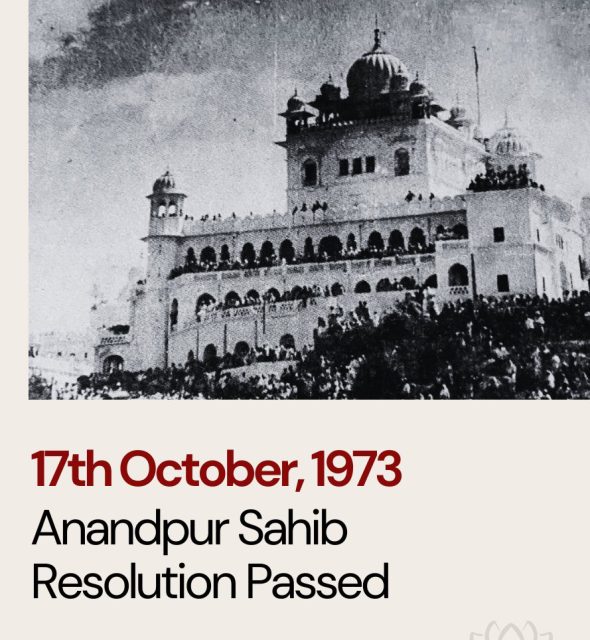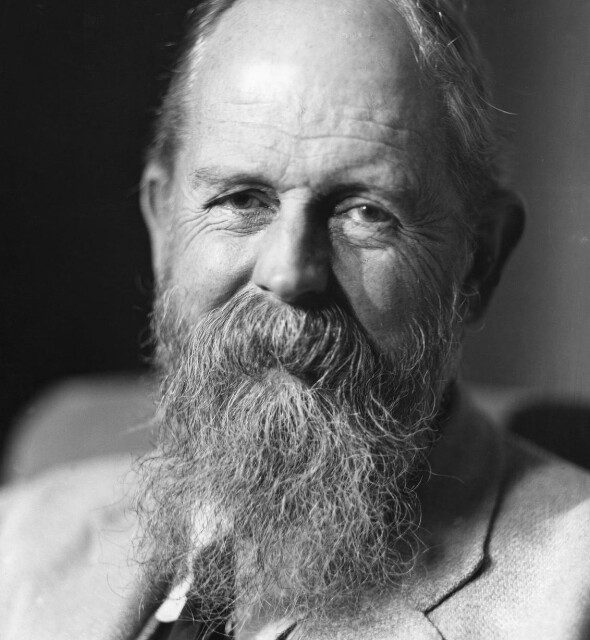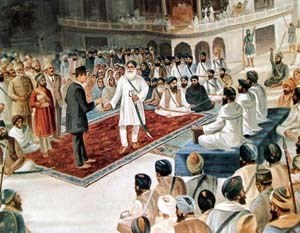
ANANDPUR SAHIB RESOLUTION, a frequently invoked document of modern Sikhism pronouncing its religious rule as well as its political goal. After having enjoyed power under chief ministers, Gurnam Singh and Parkash Singh Badal in the Punjab, newly demarcated in 1966, Sikhs as represented by their premier political party, the Shiromani Akali Dal, were able to capture only one seat at the elections to Indian Parliament (1971) from among the 13 which were Punjab`s portion. In the Punjab Assembly elections which took place in March 1972 their tally was a mere 24 seats out of a total of 117, and the Punjab Government passed into the hands of the Congress Party, with Giani Zail Singh (later, President of India) as chief minister.
DHANNA SINGH (1888-1923). a Babar revolutiortary, was born at the village of Bahibalpur, in Hoshiarpur district. His father, Indar Singh, could barely afford to send him to the village primary school where Dhanna Singh learnt to read and write in Punjabi and Urdu. Early in his youth he was converted to radical politics by Kararn Singh, of Daulatpur, leader of the Chakravarti Jatha, and helped organize the Jathas major divans at Mahalpur (March 1921) and at Kukkar Muzara (October 1921). The Chakravarti Jathas of Kishan Singh Gargajj and Karam Singh merging together made up plans at a meeting at Jassoval on 25 December 1922 to maim, plunder or murder informers and helpers of the British government.

ANDREWS, CHARLES FREER (1871-1940). Anglican missionary, scholar and educationist, was born to John Edwin Andrews on 12 February 1871 in NewcastleonTyne in Great Britain. His father was a minister of the Evangelical Anglican Church. Andrews grew up in an intense and emotional religious environment. A nearly fatal attack of rheumatic fever in childhood drew him to his mother with an intense affection and her love created in his mind the first conscious thoughts of God and Christ, and by the time he entered Cambridge, at the age of 19, he had already had "a wonderful conversion of my heart to God." In 1893, Andrews graduated first class in Classics and Theology from Pembroke College, Cambridge.
DINA NATH, PANDIT (b. 1888), active supporter of and participant in the Sikh Gurdwara reform movement 1920-25, was born in 1888, the son of Pandit Bal Krishan of Amritsar. In the wake of the agrarian protest in the Punjab in 1907, he joined the Indian National Congress. He was secretary of the Amritsar District Congress Committee when the Gurdwara reform or AkaIi movement got under way with the establishment in November 1920 of a representative Sikh body, the Shiromani Gurdwara Parbandhak Committee. Pandit Dina Nath was in sympathy with the movement and joined the Akali agitation for the restoration of the keys of the to shakhana or treasury of the Darbar Sahib, which had been taken away by the British Deputy Commissioner on 7 November 1921.






